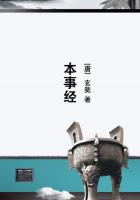In December 1559 and January 1560, an armed force was dispatched to the north, and Admiral Winter was commanded to blockade the Forth against a French fleet. A little later a formal agreement was concluded between the Duke of Norfolk representing Elizabeth, and Lord James Stuart the commissioner for the Congregation. At first it was proposed to act in common for "the maintenance of the Christian religion," but as these words might have given rise to serious complications on the Continent, it was decided that an alliance should be concluded for the defence of the ancient rights and liberties of Scotland. An English army of eight thousand men marched into Scotland, and the English fleet blockaded the fortress of Leith which was the key to the capital. Owing to the Huguenot risings in France the assistance that had been promised could not be sent, but nevertheless the invaders were thrown back in their first assault. In June 1560, however, Mary of Guise, worn out by the anxieties and cares of her difficult office, passed away, and three weeks later the garrison was obliged to surrender. English and French plenipotentiaries met to arrange the terms of peace. It was agreed that the French soldiers, with the exception of about one hundred and twenty men, should be drafted from Scotland, that no foreigners should be promoted to any office in the kingdom, that until the arrival of the king and queen the country should be governed by a council of twelve, seven of whom were to be selected by Mary and Francis and five by the Parliament, that the entire question of religion should be submitted to a Scottish Parliament convoked to meet on the 1st August (1560), and that, in the meantime, a kind of religious truce should be observed by both sides.
It was agreed, furthermore, that the spiritual peers should hold their seats in Parliament as before, and that they should not be disturbed in their ecclesiastical possessions.
The successful invasion of Scotland by the English troops had turned the scales in favour of the lords of the Congregation. They were now masters in Scotland, but, had the bishops and clergy been zealous men worthy of their sacred office, the cause of the old Church in Scotland would not have been even then hopeless. While Knox and his friends were straining every nerve to consolidate their work by the appointment of preachers and superintendents for the rising congregation, many of the Catholic bishops and abbots, several of whom were allied by blood and friendship with the lay lords, either contented themselves with doing nothing, or went over to the enemies of the Church for the sake of securing for themselves and their descendants the ecclesiastical property that they administered. The Archbishop of St. Andrew's and Primate of Scotland was the brother of the Earl of Arran. Though a convinced Catholic himself, he was not the man either to make a struggle or to inspire confidence at such a crisis. Archbishop Beaton of Glasgow had fled already from the kingdom; the Bishop of Argyll, another illegitimate scion of the house of Hamilton, was a Protestant or was soon to become one; Adam Bothwell,[19] whom the Pope had appointed the previous year to the See of Orkney on the petition of the king and queen of Scotland, could not be trusted, as his subsequent conduct showed; Alexander Gordon, who claimed to be Bishop of Galloway, though he was never consecrated, had gone over openly to the enemies of the Church, as had also the provincial of the Dominicans, the sub-prior of the chapter of St.
Andrew's, and John Rowe a former agent of the Scottish bishops at the Roman Court. With men such as these to guard the interests of Catholicism in Scotland there could be little doubt about the result.
In August 1560 the Parliament met at Edinburgh. In addition to the lay lords and representatives of the lesser nobles and of the cities, there were present a number of bishops and abbots. Amongst these latter it is interesting and instructive to note the presence of Lord James Stuart, the bastard brother of the queen and one of the leaders of the Congregation, as prior of St. Andrew's, of Lord James Hamilton son of the Earl of Arran and a follower of Knox as abbot of Arbroath, of John Stuart abbot of Coldingham, of the son of the Duke of Argyll as bishop-elect of Brechin, together with a number of other laymen, who, though holding high office in the Church, were determined to promote the new movement for the sake of the property that they hoped to obtain. The discussion opened under the presidency of Maitland, Lord of Lethington, the Scottish Cecil, a double dealer who was even more dangerous than an open enemy. A petition was presented immediately on the part of Knox and his friends that doctrines such as Transubstantiation, the sacrificial character of the Mass, Purgatory, prayers for the dead, meritorious works, etc., which had been forced upon the people by the clergy should be rejected. A confession of faith was drafted and submitted to the assembly. The Primate and the Catholic bishops present protested against the discussion of such a document on the ground that according to the terms of the Treaty of 1560 the religious question should have been submitted previously to the king and queen, and also because the treaty had never been confirmed owing to the fact that the French commissioners had exceeded their instructions. It was no doubt for this reason that a large number of the ecclesiastical and lay lords who were strongly Catholic had refused to attend the Parliament. Indeed the supporters of the old religion, relying on the help of the queen, seemed to think that any religious settlement made by Parliament was of no importance. Their refusal to discuss the confession of faith was taken, however, as a sign of their inability to refute it, and the confession was passed with but few dissentients. Later on (24th August) three other acts were formulated with the object of uprooting Catholicism in Scotland.














